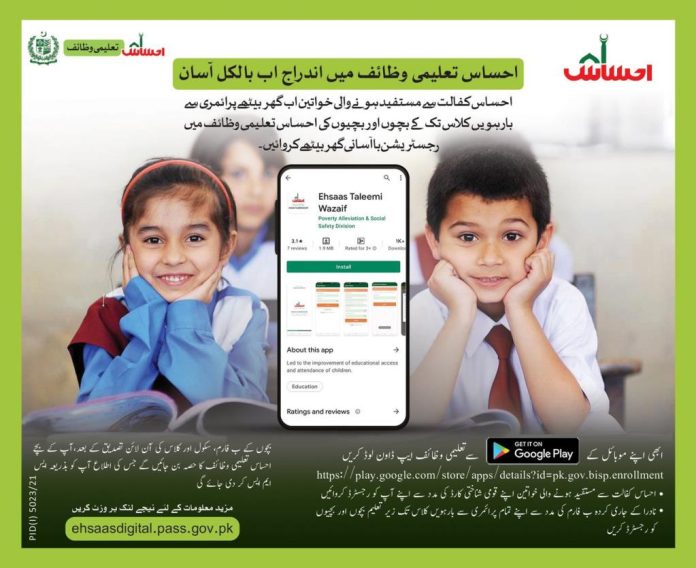ISLAMABAD, Aug 18 (APP):Benazir Income Support Program (BISP) has set a target to enroll three million additional children by financial year 2022-23 through the allocation of Rs35 billion under the Benazir Taleemi Wazaif Program, a Conditional Cash Transfer (CCT) initiative.
According to the details shared by the BISP, so far eight million children have been enrolled under this initiative through disbursement of Rs40 billion.
Benazir Taleemi Wazaif, initiated in 2012, has been focusing on school enrollment and reducing the dropout rate of children of BISP beneficiaries through cash incentives.
The objective behind this program was creating awareness amongst beneficiary families on importance of education, increasing enrollment rates and reducing the dropout rate by ensuring the retention.
The program enrolls the children of Benazir Kafalat beneficiary family, aged between 04-22 years, from Primary to Grade 12.
The program includes quarterly disbursement of Rs1500 for primary, Rs2500 for secondary and Rs3500 for higher secondary to the boy child while the quarterly disbursement of Rs2000 for primary, Rs3000 for secondary and Rs4000 for higher secondary to the girl child.
The program is providing higher stipend for girl child, with a one-time graduation bonus of Rs3000 on completion of primary education.
The cash transfer is linked with 70 percent school attendance. The biometric based payment mechanism is in place while the stipend is paid through the mother of enrolled children.
The program is being executed through end-to-end digital enrollment and monitoring mechanism to minimize leakage to ensure transparency in implementation.
The program has helped increase the proportion of children currently enrolled in schools by 13 percent points for boys and 15 percent points for girls.
The school enrollment rates in BISP households are significantly higher for those supported by the CCT (81 percent) as compared to those who are not (60 percent).
The average attendance rate for both boys and girls is significantly above the minimum required (70 percent. On average boys had attendance rate of 83 percent and girls had 81 percent.

















